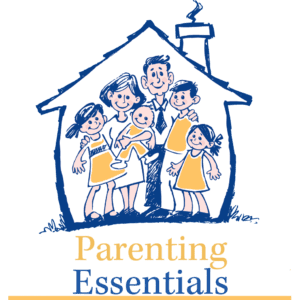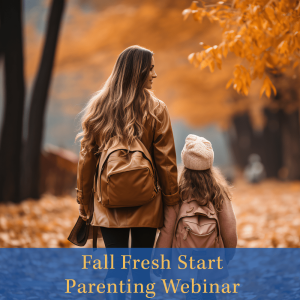Controlling Anger Anxiety
I once received a letter from a mom asking how she could help her daughter navigate feelings of anxiety. The daughter would take her feelings out on whatever family member was closest to her. The mom had pre-taught her daughter that those actions were inappropriate and worked with her to find better alternatives, but it wasn’t working.
The mother wanted to know if she should focus on what was causing the anxious feelings or if she should focus on the actions and consequences. After lashing out at family members, the daughter would often self-report, leaving the mom struggling to find an appropriate response. She was at a loss.
Understanding and Helping
This kind of anxiety often feels like a ball of fire in your stomach. It feels like if you give into it and hurt someone or get angry, you’ll feel better. Even many parents don’t even know how to control this kind of anxiety in themselves.
Emotionally healthy individuals can learn to control their anxiety or their impulse to get angry when stressed. Thinking about how we, as emotionally healthy parents, stop ourselves from yelling at our children when we’re stressed will help us know how to help children to control their emotional fireballs when they have anger anxiety.
This mother needed to have a special meeting with her daughter that I call a parent counseling to talk about the recurring problem as well as to determine the consequence for each time she chose not to control her anxiety. Even in the toughest cases of anxiety a person can still learn to recognize the moment when they get to make a choice. As part of this conversation the mother should also open a discussion about what her daughter’s body and thoughts do when she’s anxious and what she can do to stop herself from losing control. The daughter needs steps for how to control her impulses.
- Identify my trigger feeling
- Stop talking or moving
- Analyze myself
- Plan actions and words to calmly complete the interaction
- Take deliberate action steps
- Report
As soon as this daughter reacts to her anxiety, instead of controlling it by going through this process, she needs to have a corrective teaching moment and earn negative consequences so that she gets the opportunity to learn cause and effect. She’ll only learn to govern this behavior if she knows she has to stop the anxiety before it controls her. Of course this daughter will struggle a bit at first. Struggling is part of learning. We shouldn’t worry. Instead, parents need to show confidence that their children can do it.
Everyone’s anxiety is different, but I have found that it isn’t productive to worry about the causes of the anxiety. At one point in everyone’s anxious moment there is a choice. We just have to learn how to identify that moment and choose calmness and security instead of anxiety.
This daughter will have anxious moments throughout her life. The only freedom from anxiety comes from knowing she is strong enough to control herself. If she doesn’t learn this basic skill, she’ll feel out of control, build a habit of making excuses and end up rationalizing other negative habits.
Most of my foster youth had severe anxiety. One youth didn’t like change, one got anxious in new social settings, and almost all of them were anxious about getting negative feedback about their behavior. However, they soon saw that I wasn’t going to get angry at them as previous adults had done, even though I was still going to be consistent with my teaching and correcting. They felt safer in my home and slowly learned how to master their anxiety.
She’s doing her part at helping you help her by self-reporting. It’s important to reward her for self-reporting. Make sure the positive consequence is something that motivates her. So, even though she has to follow through with the negative consequence she has earned, she’s still motivated to self-report. Praise her and have a positive consequence for any effort to control her anxiety. Focus more on the positive moments than the negative ones. Don’t show emotion when she makes a mistake. And be certain to show genuine excitement when she takes steps toward self-mastery.
We all feel stressed, misunderstood or anxious from time to time. Think about the process you use to calm down and teach your child to do the same. That process likely looks similar to the six step process above.
I’ve discovered over the years that anxiety often becomes a habit and even a manipulation or negative attention seeking when left unchecked. Individuals who don’t learn to notice and control their anxious feelings become ruled by them. To be free from anxiety, individuals can recognize their feelings and learn to calm themselves down so they are more able to address the problem.
Dare to Take Command, an online event on May 18, 2019, will go into much more detail about how we all can learn to better rule ourselves. Sign up here.





